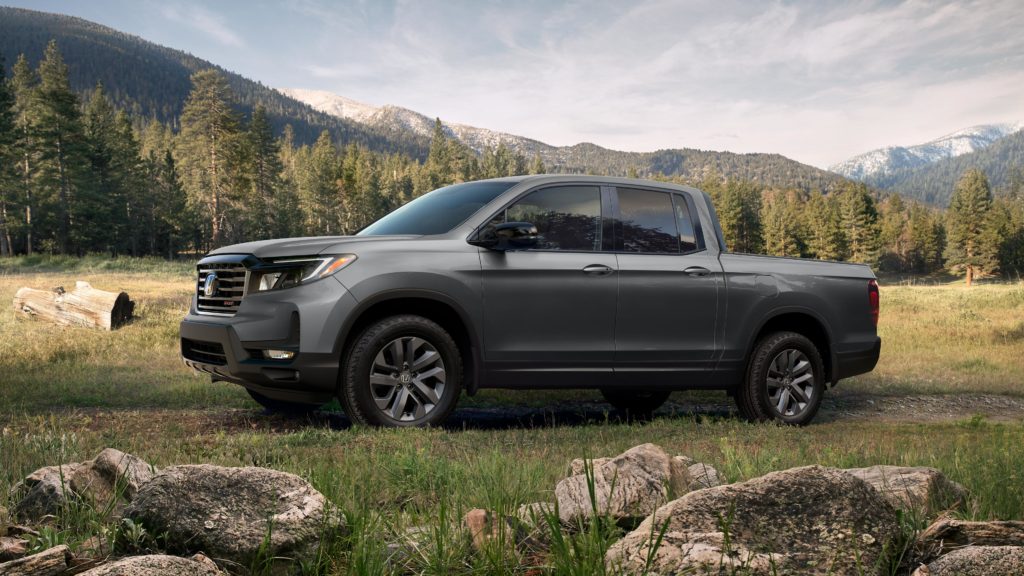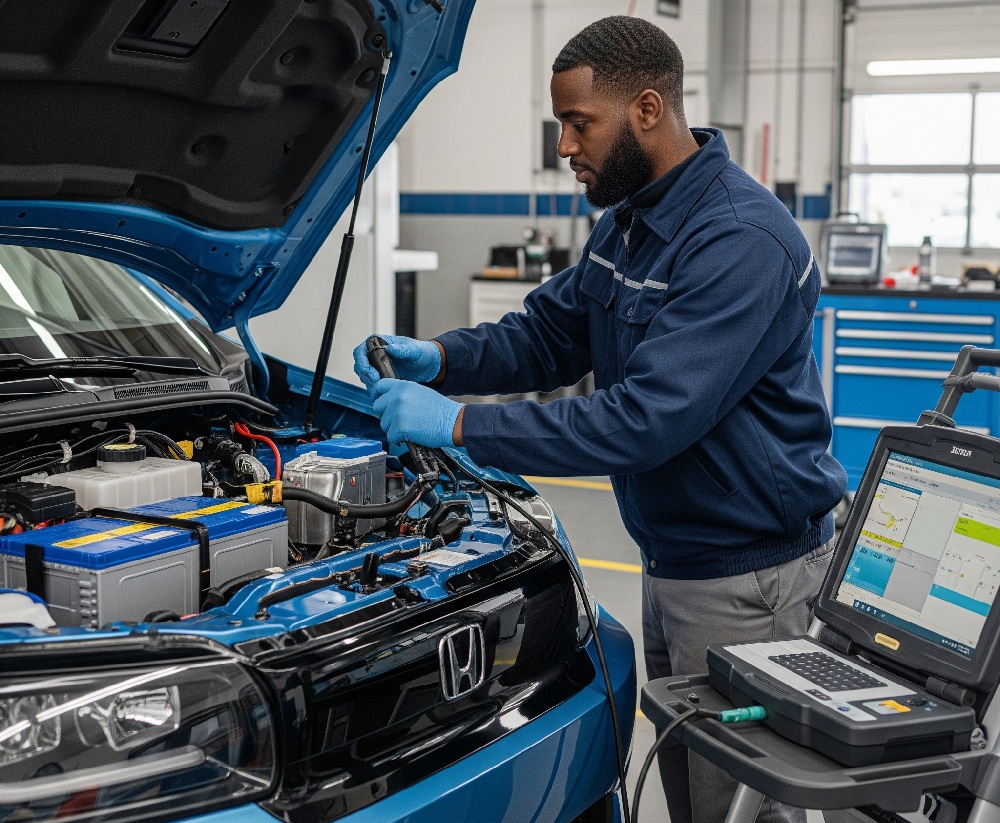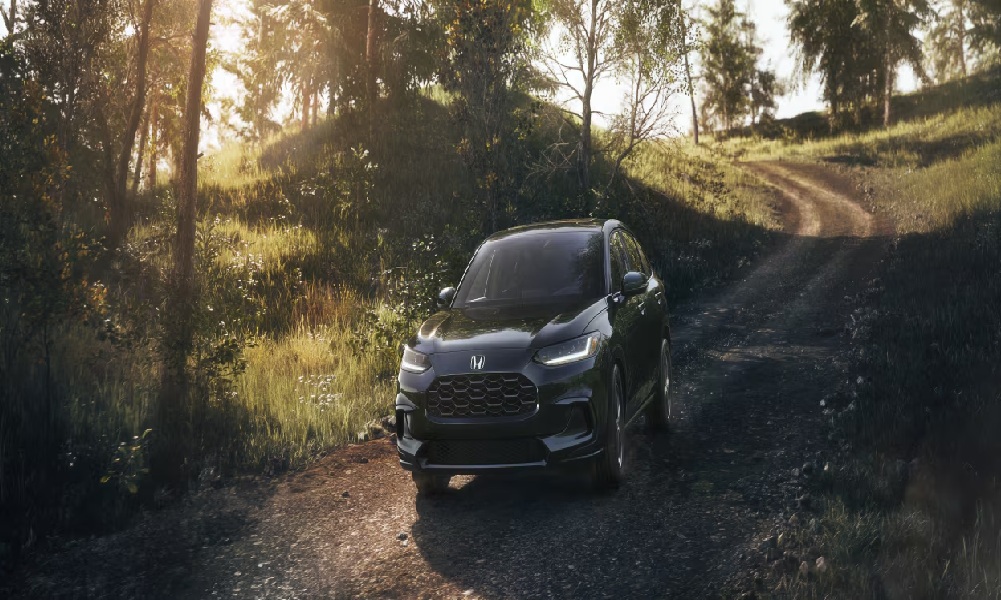The Honda Ridgeline stands out as a unique and versatile alternative to traditional pickup trucks like the Ford F-150. With its unibody construction, innovative features, and impressive handling, the Ridgeline offers distinct advantages for buyers seeking a truck that balances utility and comfort. This comparison highlights where the Honda Ridgeline excels, showcasing its strengths and why it could be the perfect choice for those looking for something different in the pickup market.

Ride Comfort and Handling
The Honda Ridgeline stands out significantly in ride comfort and handling thanks to its unibody construction and independent rear suspension.
Unibody Construction
Unlike the F-150’s traditional body-on-frame design, the Ridgeline uses a unibody construction similar to a car or crossover SUV. This results in:
- Smoother ride quality
- Reduced body flex and vibration
- Better noise, vibration, and harshness (NVH) control
Independent Rear Suspension
The fully independent rear suspension of the Ridgeline, as opposed to the F-150’s solid rear axle, provides:
- Improved handling and cornering stability
- Better traction on uneven surfaces
- Reduced impact harshness over bumps and potholes
Driving Dynamics
The combination of unibody construction and independent suspension gives the Ridgeline car-like driving dynamics, making it more comfortable and easier to maneuver in urban environments. This is particularly beneficial for drivers who use their trucks as daily drivers or family vehicles.
Fuel Efficiency
The Honda Ridgeline offers superior fuel efficiency compared to most F-150 models, particularly in city driving conditions.
Fuel Economy Comparison
- Honda Ridgeline (AWD):
- City: 12.8 L/100 km
- Highway: 9.9 L/100 km
- Combined: 11.5 L/100 km
- Ford F-150 (3.5L EcoBoost V6, 4WD):
- City: 13.5 L/100 km
- Highway: 10.2 L/100 km
- Combined: 12.0 L/100 km
The Ridgelines superior fuel efficiency translates to potential savings of hundreds of dollars per year in fuel costs, depending on driving habits and fuel prices.
Reasons for Better Efficiency
- Lighter weight due to unibody construction
- More aerodynamic design
- Advanced Variable Cylinder Management (VCM) system
Innovative Cargo Solutions
The Honda Ridgeline offers several unique cargo features that set it apart from the F-150 and other traditional pickup trucks.
In-Bed Trunk
One of the most distinctive features of the Ridgeline is its lockable in-bed trunk:
- 207-liter capacity
- Weather-sealed and drainable
- Can be used as a cooler for tailgating or camping
This feature provides secure, weatherproof storage that is unavailable on the F-150 or any other pickup truck on the market.
Dual-Action Tailgate
The Ridgeline tailgate can swing open like a door or fold down like a traditional tailgate, offering:
- Easier access to the cargo bed
- Convenient loading and unloading of heavy items
- Better reach into the bed for shorter individuals
Flat Bed Floor
Unlike the F-150, the Ridgeline offers a completely flat bed floor with no wheel well intrusions, providing:
- Easier loading and unloading of large, flat items
- More usable cargo space
- Ability to lay 4×8 sheets of plywood flat in the bed
Interior Space and Comfort
The Ridgeline unibody design allows for more efficient use of interior space compared to the body-on-frame F-150.
Passenger Volume
- Honda Ridgeline: 3,106 liters
- Ford F-150 SuperCrew: 3,041 liters
Despite its smaller overall dimensions, the Ridgeline offers more interior passenger volume than the F-150 SuperCrew.
Rear Seat Comfort
The Ridgeline rear seats offer:
- More legroom than some F-150 configurations
- A higher, more comfortable seating position
- Easier ingress and egress due to lower step-in height
Interior Features
The Ridgeline offers several interior features that enhance comfort and versatility:
- Standard tri-zone automatic climate control
- Available heated steering wheel
- 60/40 split lift-up rear seat with underseat storage
Safety Features and Ratings
The Honda Ridgeline excels in safety, offering a comprehensive suite of standard safety features and impressive crash test ratings.
Standard Safety Features
The Ridgeline comes standard with Honda Sensing®, a suite of driver-assistive technologies, on all trims, including:
- Collision Mitigation Braking System™ (CMBS™)
- Road Departure Mitigation System (RDM)
- Adaptive Cruise Control (ACC)
- Lane Keeping Assist System (LKAS)
While the F-150 offers similar features, they’re not standard across all trims.
Crash Test Ratings
The Ridgeline has received top safety ratings from both the NHTSA and IIHS:
- NHTSA: 5-Star Overall Vehicle Score
- IIHS: Top Safety Pick+ (highest possible rating)
While the F-150 also performs well in crash tests, the Ridgeline unibody construction provides inherent safety advantages in certain collisions.
All-Weather Capability
While the F-150 is known for its off-road prowess, the Ridgeline offers superior all-weather performance for most everyday driving situations.
Intelligent Variable Torque Management™ (i-VTM4®) AWD System
The Ridgeline AWD system provides:
- Torque vectoring for improved handling and traction
- Ability to send up to 70% of torque to the rear wheels
- Dynamic distribution of torque between the left and right rear wheels
This system performs better on wet or snowy roads than the F-150’s standard 4WD system.
Intelligent Traction Management
The Ridgeline features a button-operated Intelligent Traction Management system with modes for:
- Normal
- Snow
- Sand
- Mud
This system allows drivers to optimize the vehicle’s performance for various road conditions easily.
Value Proposition
The Ridgeline offers several advantages over the F-150 when considering the overall value proposition.
Price Comparison (in CAD)
- Honda Ridgeline starting price: Approximately $47,000
- Ford F-150 starting price: Approximately $41,000
While the Ridgeline starting price is higher, its base model offers more standard features and a higher level of refinement.
Standard Features
The Ridgeline includes as standard many features that are optional on the F-150, such as:
- Dual-action tailgate
- In-bed trunk
- Tri-zone automatic climate control
- Apple CarPlay and Android Auto integration
Resale Value
Honda vehicles, including the Ridgeline, are known for their strong resale value. According to Canadian Black Book, the Ridgeline often retains a higher percentage of its value after five years compared to the F-150.
Maintenance Costs
The car-like construction of the Ridgeline and the Honda reputation for reliability often translates to lower long-term maintenance costs than traditional body-on-frame trucks like the F-150.
Comfort and Efficiency
While the Ford F-150 remains a popular choice for those needing maximum towing and payload capacity, the Honda Ridgeline offers a compelling alternative for buyers who prioritize:
- Comfort and ride quality
- Fuel efficiency
- Innovative cargo solutions
- Interior space and features
- Comprehensive safety features
- All-weather performance
- Overall value and lower ownership costs
The unique blend of SUV-like comfort in the Ridgeline, pickup truck utility, and car-like handling makes it ideal for those who need the versatility of a truck but don’t want to compromise on daily driving comfort and efficiency. Its innovative features, such as the in-bed trunk and dual-action tailgate, provide practical solutions unavailable on traditional pickup trucks.
For many Canadian buyers, especially those in urban and suburban areas who use their trucks as daily drivers and weekend adventure vehicles, the Honda Ridgeline offers a balanced and versatile package that better suits their needs than the more traditional Ford F-150.




